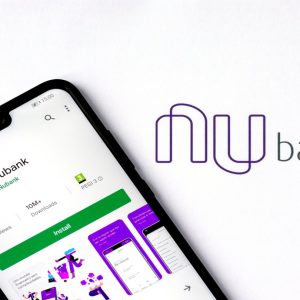
“Over the past 150 years banks and the federal banking system have been the source of tremendous innovation that has improved banking services and made them more accessible to millions.
The federal banking system must continue to evolve and embrace innovation to meet the changing customer needs and serve as a source of strength for the nation’s economy,” said Comptroller of the Currency Joseph M. Otting.
“The decision to consider applications for special purpose national bank charters from innovative companies helps provide more choices to consumers and businesses, and creates greater opportunity for companies that want to provide banking services in America. Companies that provide banking services in innovative ways deserve the opportunity to pursue that business on a national scale as a federally chartered, regulated bank.”
The OCC’s decision is consistent with bi-partisan government efforts at federal and state levels to promote economic opportunity and support innovation that can improve financial services to consumers, businesses, and communities. The decision was documented in a policy statement and supplement to the OCC’s Comptroller’s Licensing Manual, both published today
The OCC’s decision follows extensive outreach with many stakeholders over a two-year period, and after reviewing public comments solicited following the publication of Exploring Special Purpose National Bank Charters for Fintech Companies in December 2016, and Comptroller’s Licensing Manual Draft Supplement: Evaluating Charter Applications From Financial Technology Companies in March 2017.
In announcing the decision, the policy statement and Comptroller’s Licensing Manual Supplement stress:
Every application will be evaluated on its unique facts and circumstances.
Fintech companies that apply and qualify for, and receive, special purpose national bank charters will be supervised like similarly situated national banks, to include capital, liquidity, and financial inclusion commitments as appropriate.
Fintech companies will be expected to submit an acceptable contingency plan to address significant financial stress that could threaten the viability of the bank. The plan would outline strategies for restoring the bank’s financial strength and options for selling, merging, or liquidating the bank in the event the recovery strategies are not effective.
The expectations for promoting financial inclusion will depend on the company’s business model and the types of planned products, services, and activities.
New fintech companies that become special purpose national banks will be subject to heightened supervision initially, similar to other de novo banks.
The OCC has the authority, expertise, processes, procedures, and resources necessary to supervise fintech companies that become national banks and to unwind a fintech company that becomes a national bank in the event that it fails.
The OCC has statutory authority, regulations, and policies that govern its review and decision making with respect to chartering national banks, including special purpose national banks. That authority includes companies that engage in one of the core banking functions (paying checks, lending money, or taking deposits) and is described at 12 CFR 5.20(e)(1). That authority does not require the bank to take deposits within the meaning of the Federal Deposit Insurance Act and therefore would not require insurance from the Federal Deposit Insurance Corporation.
Qualifying fintech companies also may apply for federal charters under the OCC’s authority to charter full-service national banks and other special purpose banks, such as trust banks, banker’s banks, and credit card banks.
A national bank charter is only one option among many for companies engaged in the business of banking. Other options include pursuing state banking charters, appropriate business licenses, and partnerships with other federal or state financial institutions. The option to apply for a national bank charter allows these companies to choose the best business model and regulatory structure for their business and strategic goals, which will help them meet the needs of their customers throughout the nation.
“Providing a path for fintech companies to become national banks can make the federal banking system stronger by promoting economic growth and opportunity, modernization and innovation, and competition,” Comptroller Otting said. “It also provides consumers greater choice, can promote financial inclusion, and creates a more level playing field for financial services competition.”
Source: Company Press Release






